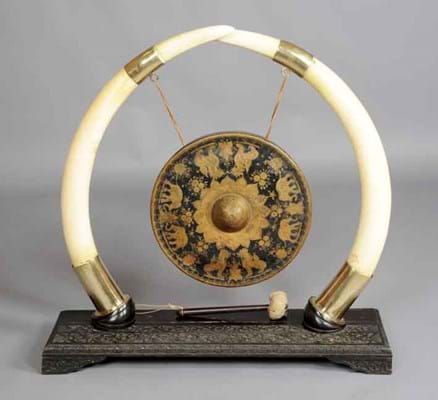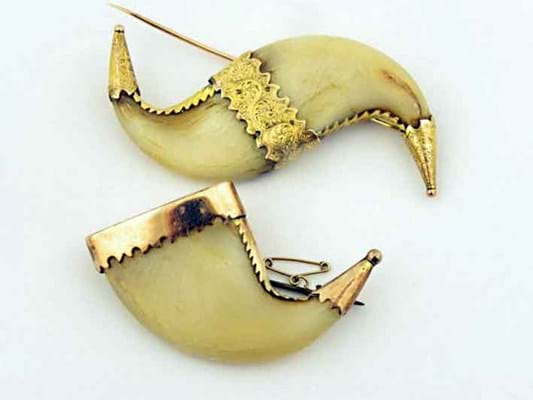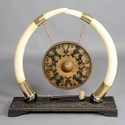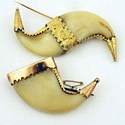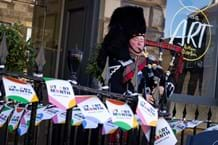With the Wildlife Licensing & Registration Service refusing to issue licences, the sale of many objects incorporating old elephant ivory and tiger claws is now effectively banned.
As reported in ATG last month, new European Commission guidance on the application of the "worked specimens" derogation - that has traditionally exempted most antiques from controls on the trade in endangered species - was quietly issued to CITES Management Authorities on May 9.
Although no trade bodies were alerted, the changes amounted to a fresh interpretation of the law and a volte face on a raft of items previously considered "worked".
According to the new interpretation of the law, EC certificates (commonly known as Article 10 licences) are now required when selling whole marine turtle shells, the horns or antlers and skull plates of CITES-listed species, swordfish and sawfish rostrums, narwhal tusks and sperm whale teeth. The certification process is undertaken by the Wildlife Licensing & Registration Service in Bristol (SSC Bristol) at a current cost of £31 per item per transaction, although charges are scheduled to increase to £68 by 2015.
But while, subject to the usual pre-1947 conditions, licences for these CITES-listed species will be issued, items incorporating whole or sections of elephant tusks are more problematic.
Fully Carved Definition
The definition of what constitutes worked elephant ivory has changed significantly under the new rules. For tusks or sections of tusks to be considered worked they now need to be fully carved or shaped into a new form such as a paper turner. Even when tusks are polished and permanently mounted as part of a decorative or functional object they no longer qualify as worked.
As written, the new guidance does appear to allow these items to be traded - it lists items such as the elephant ivory dinner gong among objects that "require an EC certificate before they can be used commercially".
However, in practice, as part of their programme of "stricter domestic measures", UK CITES Management Authorities will refuse applications for Article 10 certification on any item of elephant ivory unless it is deemed to have been worked. It brings the rules regarding the trade in old elephant ivory closer in line with those for rhino horn, which since 2010 have been subject to a growing series of measures designed to stem black market trade.
Tiger Parts
Antiques including tiger parts are also subject to 'stricter measures'. Although it remains perfectly legal to own such items, tiger claw jewellery or objects of vertu mounted in silver or gold will not be given licences for sale, while the advice is now that a tiger skin, with or without a head, will not be considered "worked" unless it is tanned and lined.
Following the changes, 'problem' objects have been withdrawn from sales and auction storerooms across the country - but violations continue through ignorance. Under the new rules items such as the silver and elephant tusk centrepiece by Walker & Hall, Sheffield, 1928, (estimate £4000-5000) withdrawn from Bonhams' silver sale on June 19, or the tiger claw gold brooch and earrings (estimate £100-200) pulled from Sworders' sale on June 25 have no legal commercial value.
Grey Areas
Kim McDonald, whose company Taxidermy Law provides consultancy work to more than 30 of the UK's auction houses, believes that an attempt to remove grey areas surrounding the worked derogation has simply created more. Among the first industry figures to find out about the new measures (on May 30), he has written to DEFRA requesting some clarification on a number of the new rules including the stipulation that tusks or sections of tusks will only be considered worked if they are fully carved across 'the whole surface'.
"Until we have clarification nobody knows where we stand," he told ATG.
Chris Auger, office manager at SSC Bristol, told ATG on July 4: "We are meeting with our policy advisors in DEFRA next week to discuss the consequences of the new guidance in respect of pre-1947 specimens which are now considered unworked, and will be in touch once a way forward has been agreed."

